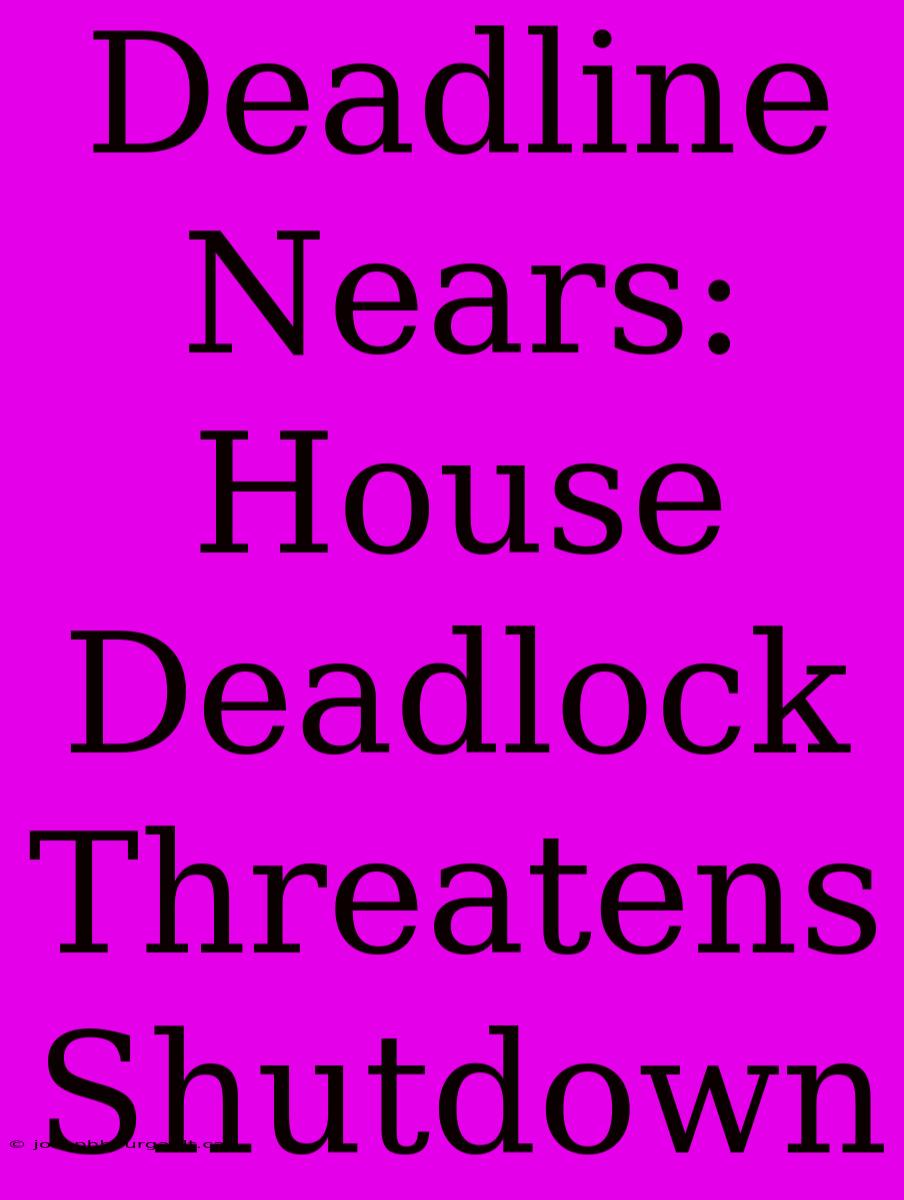Deadline Nears: House Deadlock Threatens Shutdown
The United States faces a looming government shutdown as lawmakers struggle to reach a budget agreement before the September 30 deadline. The House of Representatives remains deadlocked, with Republicans and Democrats unable to bridge their stark differences on spending priorities. This impasse has created a precarious situation, threatening to bring essential government services to a standstill.
The Key Points of Contention
The primary point of contention lies in the proposed level of spending. Republicans, currently controlling the House, are pushing for deep cuts to discretionary spending, targeting programs like environmental protection and social services. Democrats, however, are advocating for maintaining current funding levels, emphasizing the importance of these programs in supporting vulnerable populations and investing in crucial infrastructure.
Potential Impacts of a Shutdown
A government shutdown could have far-reaching consequences, impacting a wide range of services and functions:
- National Parks and Monuments: Visitors might be denied access to national parks and monuments, with services like ranger programs and maintenance suspended.
- Social Security and Medicare: While payments might continue, essential processing and administrative tasks could be disrupted, potentially causing delays in benefit disbursements.
- Federal Agencies and Programs: Services provided by various agencies like the Environmental Protection Agency, Department of Transportation, and Department of Education could be significantly curtailed, impacting essential functions and projects.
- Economic Fallout: A shutdown could disrupt businesses and industries reliant on government contracts and funding, potentially leading to job losses and economic uncertainty.
Navigating the Impasse
To avert a shutdown, both parties must prioritize compromise and collaboration. Finding common ground on essential issues like disaster relief funding and addressing national security threats could pave the way for a budget deal.
The Need for Bipartisan Action
This situation underscores the importance of bipartisan cooperation in navigating complex challenges. The current deadlock highlights the urgent need for lawmakers to prioritize the interests of the American people above partisan agendas. Failing to reach a consensus will only exacerbate the existing challenges and leave the nation vulnerable to potentially devastating consequences.
As the September 30 deadline looms, the pressure on both parties to break the stalemate and prevent a shutdown is mounting. The eyes of the nation are watching as this critical moment in American politics unfolds.

